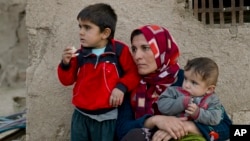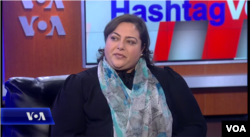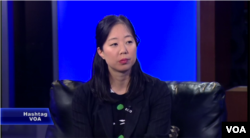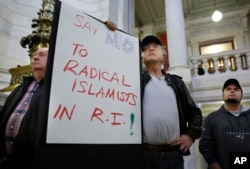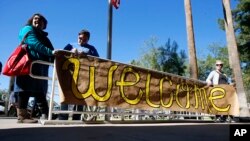U.S. advocates for Syrian refugees are intensifying a campaign to boost public support for resettling them in the United States, as opinion polls suggest more than half of U.S. citizens oppose the resettlement program.
U.S. President Barack Obama has said he wants to welcome at least 10,000 Syrian refugees in the 2016 fiscal year, on top of the 2,234 Syrians whom the State Department says have been admitted to the United States since October 2010.
In three U.S. opinion polls published by Bloomberg, NBC News and the Washington Post/ABC News this month, 53 to 56 percent of respondents said no more Syrian refugees should enter. One reason cited by many respondents is a concern that Islamic State terrorists could slip through the U.S. refugee vetting process. European media say EU officials believe two of the Islamic State terrorists who attacked Paris this month had entered Europe as part of a Syrian refugee wave.
Vetting process under scrutiny
The Obama administration says all refugees applying for asylum in the United States "undergo a rigorous security screening involving multiple federal intelligence, security and law enforcement agencies,” while Syrians in particular go through an "additional layer" of screening tailored to the "particular conditions of the Syrian crisis" — a layer of which details are classified.
The Center for Immigration Studies (CIS), a non-profit group whose mission is to publicize "consequences of legal and illegal immigration" into the United States, says Obama's vetting procedures have several vulnerabilities. Among them, writes CIS fellow Dan Cadman, is an ability of jihadists to exploit Syria's chaos to obtain legitimate Syrian documents, forge them and present the forgeries to U.S. officers who would have "no one ... [to] turn to in order to verify the identity."
Watch video report from VOA's Zlatica Hoke:
The Syrian American Council (SAC), a group advocating for a democratic Syria, supports the U.S. refugee vetting system. "It is very robust," said Suzanne Meriden, SAC director of operations, on this week's Hashtag VOA program. "If you are a terrorist, you definitely do not want to come through the refugee process because you will be caught."
Meriden said calls to stop Syrian refugee resettlement reflect a misunderstanding of the Syrian conflict by Americans. "The refugees are fleeing terror, yet here we are calling them terrorists," she said.
Outreach campaign begins
The Syrian American Council has been holding news conferences in U.S. cities such as Phoenix, Arizona and Annapolis, Maryland in the past week to try to change those perceptions. It also has used the events to invite U.S. state governors to meet with Syrian refugees who already have settled in their states.
Maryland governor Larry Hogan, a Republican, is one of about 30 state governors - almost all fellow Republicans - who have called on Obama to suspend the entry of Syrian refugees until the vetting process is tightened.
Meriden told Hashtag VOA that she expects to get a response from the Maryland governor soon. "We’re waiting to hear what that is, but we feel good about it,” she said.
Hogan’s office has not commented on the matter.
Meriden said the Syrian American Council has also been connecting people who want to help Syrian refugees to organizations hired by the federal government to resettle the new arrivals. One of those groups is World Relief, the humanitarian arm of the National Association of Evangelicals.
World Relief's vice president of advocacy and policy, Jenny Yang, also appeared on Hashtag VOA, and said her organization works with businesses and religious groups around the country to provide Syrian refugees with jobs and welcoming communities.
"We equip churches to respond tangibly," Yang said. "We work with them in picking up a refugee family at the airport, or providing them with a meal, or even inviting a family [to join them] for the holidays.”
Focus on refugees’ religion
U.S. Republican Party presidential contenders Ted Cruz and Jeb Bush have called for such a welcome to be provided to Syrian Christians, rather than Muslims, who make up most of Syria's refugees. The candidates and their supporters say Syrian Christians are fleeing not just a civil war but also an Islamic State genocide campaign against the Christian faith. U.S. federal law requires authorities to recognize a refugee's religion in determining whether to grant asylum.
Yang said World Relief believes there is a need to help religious minorities in the Middle East, including Christians. "But helping Christians doesn’t have to come at the expense of other refugees like Muslims who also are persecuted," she said. "As Christian evangelicals, we believe that we can live out the calling of Jesus in welcoming the foreign-born and others into our communities."
Yang said the number of Syrian refugees that the Obama administration wants to welcome in fiscal year 2016 — 10,000 — is a "drop in the bucket" compared to the millions of Syrian refugees absorbed by Turkey, Lebanon, Jordan and Iraq.
U.S. immigration system critic Julie Axelrod, director of investigations at the Immigration Reform Law Institute, said the onus should be on other Arab nations to do more for the refugees.
"Those who imply that the United States has been uniquely hesitant among its allies to take in refugees seem to be ignoring wealthy Gulf Arab nations like the United Arab Emirates and Saudi Arabia, which largely refuse to take in refugees because of security concerns," Axelrod said in an email to VOA.
Burden or benefit to society?
Axelrod also said the U.S. refugee resettlement program requires significant government funds that could be spent more effectively by sending aid to Syrian refugees in the Middle East.
Axelrod cited U.S. government data compiled by the Center for Immigration Studies, which estimated the cost of resettling a Middle Eastern refugee in the United States at $64,370 for the first five years, about 12 times the cost of sustaining a refugee in a neighboring country for the same period. The U.S. costs primarily include government fees to resettlement groups that pay for refugee housing, transportation and other expenses, as well as welfare payments to refugees themselves.
Meriden of the Syrian American Council said Syrian refugees have a positive impact on their communities. “That means a lot of new talent, skills, and cultural perspective,” she said.
A bipartisan majority of the U.S. House of Representatives voted on November 19 to require President Obama to suspend Syrian refugee resettlement until implementation of a new system in which top U.S. security officials individually vet and approve each applicant. The Senate has been considering the House bill and Obama has said its passage there would prompt him to try to use his veto. But, his administration also said it is “examining options for further enhancements” to Syrian refugee screening, acknowledging a need to address the broad security concerns of lawmakers and the public.
